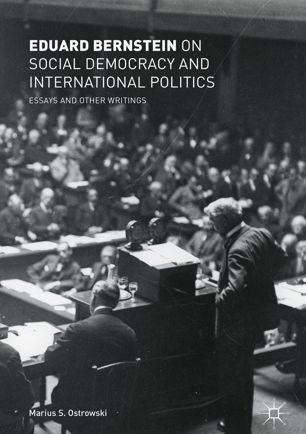

Most ebook files are in PDF format, so you can easily read them using various software such as Foxit Reader or directly on the Google Chrome browser.
Some ebook files are released by publishers in other formats such as .awz, .mobi, .epub, .fb2, etc. You may need to install specific software to read these formats on mobile/PC, such as Calibre.
Please read the tutorial at this link: https://ebookbell.com/faq
We offer FREE conversion to the popular formats you request; however, this may take some time. Therefore, right after payment, please email us, and we will try to provide the service as quickly as possible.
For some exceptional file formats or broken links (if any), please refrain from opening any disputes. Instead, email us first, and we will try to assist within a maximum of 6 hours.
EbookBell Team

5.0
60 reviewsThis book presents three later works by the German social-democratic thinker and politician Eduard Bernstein, translated into English in full for the first time: Social Democracy and International Politics: Social Democracy and the European Question; League of Nations or League of States; and International Law and International Politics: The Nature, Questions, and Future of International Law. Written at the height of WW1, they address the abrupt collapse of international socialist cooperation after its outbreak, and outline a vision for peace in Europe and beyond. Bernstein argues for an ethical, democratic approach to international relations, governed by a corpus of international law, and safeguarded by an international union dedicated to preserving peoples’ right to self-determination. He is sceptical of the state-centrism of early-20th-century liberal proposals for developing strong international institutions, while also deeply critical of militarist and imperialist political leaders and thinkers for preventing even these limited proposals from being realised. Instead, in these works, Bernstein urges social democrats to campaign for a system of international economic, legal, and cultural relations that he calls the ‘republic of peoples’, and he explores themes of patriotism, class struggle, diplomacy, and free trade that still carry resonance today.